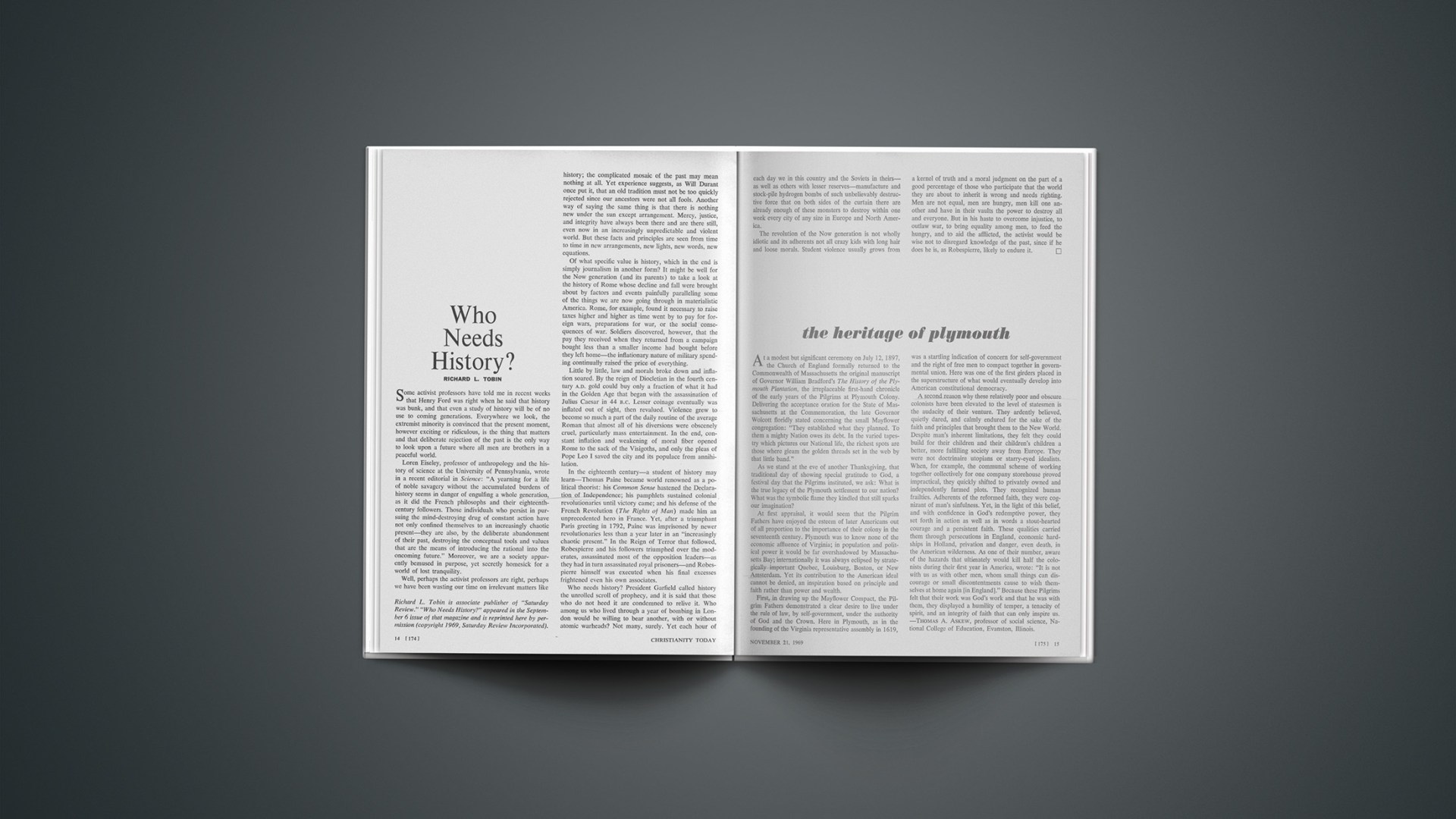At a modest but significant ceremony on July 12, 1897, the Church of England formally returned to the Commonwealth of Massachusetts the original manuscript of Governor William Bradford’s The History of the Plymouth Plantation, the irreplaceable first-hand chronicle of the early years of the Pilgrims at Plymouth Colony. Delivering the acceptance oration for the State of Massachusetts at the Commemoration, the late Governor Wolcott floridly stated concerning the small Mayflower congregation: “They established what they planned. To them a mighty Nation owes its debt. In the varied tapestry which pictures our National life, the richest spots are those where gleam the golden threads set in the web by that little band.”
As we stand at the eve of another Thanksgiving, that traditional day of showing special gratitude to God, a festival day that the Pilgrims instituted, we ask: What is the true legacy of the Plymouth settlement to our nation? What was the symbolic flame they kindled that still sparks our imagination?
At first appraisal, it would seem that the Pilgrim Fathers have enjoyed the esteem of later Americans out of all proportion to the importance of their colony in the seventeenth century. Plymouth was to know none of the economic affluence of Virginia; in population and political power it would be far overshadowed by Massachusetts Bay; internationally it was always eclipsed by strategically important Quebec, Louisburg, Boston, or New Amsterdam. Yet its contribution to the American ideal cannot be denied, an inspiration based on principle and faith rather than power and wealth.
First, in drawing up the Mayflower Compact, the Pilgrim Fathers demonstrated a clear desire to live under the rule of law, by self-government, under the authority of God and the Crown. Here in Plymouth, as in the founding of the Virginia representative assembly in 1619, was a startling indication of concern for self-government and the right of free men to compact together in governmental union. Here was one of the first girders placed in the superstructure of what would eventually develop into American constitutional democracy.
A second reason why these relatively poor and obscure colonists have been elevated to the level of statesmen is the audacity of their venture. They ardently believed, quietly dared, and calmly endured for the sake of the faith and principles that brought them to the New World. Despite man’s inherent limitations, they felt they could build for their children and their children’s children a better, more fulfilling society away from Europe. They were not doctrinaire utopians or starry-eyed idealists. When, for example, the communal scheme of working together collectively for one company storehouse proved impractical, they quickly shifted to privately owned and independently farmed plots. They recognized human frailties. Adherents of the reformed faith, they were cognizant of man’s sinfulness. Yet, in the light of this belief, and with confidence in God’s redemptive power, they set forth in action as well as in words a stout-hearted courage and a persistent faith. These qualities carried them through persecutions in England, economic hardships in Holland, privation and danger, even death, in the American wilderness. As one of their number, aware of the hazards that ultimately would kill half the colonists during their first year in America, wrote: “It is not with us as with other men, whom small things can discourage or small discontentments cause to wish themselves at home again [in England].” Because these Pilgrims felt that their work was God’s work and that he was with them, they displayed a humility of temper, a tenacity of spirit, and an integrity of faith that can only inspire us.
—THOMAS A. ASKEW, professor of social science, National College of Education, Evanston, Illinois.










